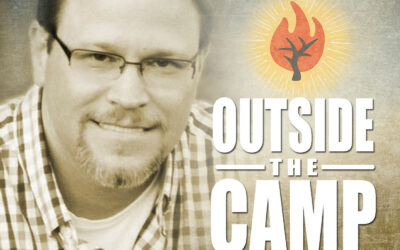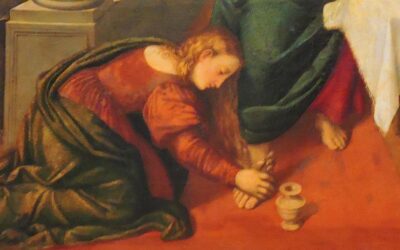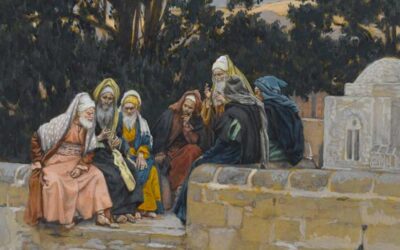But way back in the fourth century, about the time that the Church became institutionalized and systematized, “the powers that be” decided that December 25th would be a day to celebrate the birth of Jesus. This became known as Christ’s Mass, and the first recorded observance took place in Rome on December 25, 336 AD – some 23 years after the edict of Milan in 313 AD that stopped the persecution of Christians in the Roman Empire. Fast forward a couple of thousand years and December 25th has became the religious, cultural, and social holiday event known around the world as Christmas.
The question is: Should Christians celebrate Christmas?
I’ve put off writing this article for decades. Every year I go through the inner turmoil of whether or not to wish “Merry Christmas” to my subscribers, supporters, readers, and friends – because every year that I do, I invariably receive a handful of responses from the Ebenezer Scrooges on my list, rebuking me for my apparent lack of understanding, wishing to educate me on the “pagan roots” of Christmas. Then I have to contend with the politically-correct secular world lobbying for the less offensive “Happy Holidays” and “Season’s Greetings” salutation. On the far extreme you have totalitarian governments and Communist countries who want to eliminate Christ, Christians, and Christmas altogether.
It seems to me, with all the really important stuff going on in the world, that Christians could at least not argue over Christmas. But Christian arguments against Christmas are almost as old as Christmas itself. The Puritans banned Christmas, condemned it as an invention of the Catholic church, and called it part of the “trappings of popery” clothed in the “rags of the Beast.” I understand them hating anything to do with Roman Catholicism (it was the Reformation, after all) but give me a break – these are the same religious nuts who falsely accused people as “witches” and executed them. Banning Christmas while hanging women falsely accused of witchcraft – sounds like a real happy group of people, doesn’t it? If I was around when the Puritans banned Christmas I would plant a big fat Christmas tree right in the middle of the village square and prepare to meet my Maker.
Ah, the pagan roots! Yes, I know that December 25th was the winter solstice in the Roman calendar, and that the “Birthday of the Sun” festival happened that same day in honor of the Roman sun god, Sol Invictus. The idea was to provide a Christian alternative to the pagan celebration. St. Augustine explained the rationale for celebrating the birth of Jesus on that particular day:
“Hence it is that He was born on the day which is the shortest in our earthly reckoning and from which subsequent days begin to increase in length. He, therefore, who bent low and lifted us up chose the shortest day, yet the one whence light begins to increase.”
I could explain it better just by saying that December 25th (to Christians, at least) was the celebration of the SON, the True Light of the World, arriving on Earth’s shortest – and symbolically – its darkest and coldest day of the year. Beautiful, isn’t it? Of course, by our calendar the winter solstice is December 21st, and Jesus probably wasn’t born in December at all, but the idea is more important than the date. The bottom line is that Christmas was originally intended to be a Christ-centered testimony against paganism.
Personally, I love the thought of setting up your own Jesus-focused celebration right in the middle of a huge pagan festival. Dueling holidays! Choose ye this day which celebration to attend – the Festival of the SUN or the Festival of the SON? I think it worked. I mean, does anyone celebrate “Sol Invictus Day” anymore? Exactly.
But if you want to get superstitious over everything with “pagan roots” then watch out, because those pagan roots are everywhere you look. If you think about it, all of us are descendants of pagans, so there’s no escaping it. Unless, of course, we become believers in Jesus and follow Him; then, our pagan roots are irrelevant. That’s a good thing, because we can’t escape our history. Take the days of the week, for example. The day dedicated to the Roman god Saturn is now our Saturday. (Get it? Saturn’s day?) “Sun Day” became Sunday. “Moon Day” became Monday. Tiw’s Day, Woden’s Day, Thor’s Day, and Freya’s Day in the Germanic pagan calendar became our other days of the week. And don’t even get me started about the pagan roots of the names of the months! January, named after Janus, the Roman god of beginnings and endings. March, for Mars, the god of war. Juno, the wife of Jupiter, becomes June. Need I go on? Oh, those horrible pagan roots are everywhere!
Shall we change the names of the days and months to rid ourselves of the vestiges of paganism? Let’s name the twelve months after the twelve disciples. The easiest, simplest way to get started is to change “June” to “John.” Then we will be more spiritual and less pagan. We can try that one and see how it works before changing the others. The only problem is whenever someone says, “Turn to John 17” we’ll have to clarify: “Do you mean John 17 in my Bible, or John 17 in my calendar? Are we studying Scripture or making an appointment?” And we’ll have to figure out what month should be named after Judas Iscariot…
On second thought, maybe we should keep things as they are and get over our superstitious infatuation with pagan names and symbols. Discovering the pagan roots in our modern culture is like discovering water in the ocean – it’s not that miraculous. God can see your heart and knows you aren’t paying homage to Saturn by cooking hotdogs on Saturday. Months, days, and holidays like Christmas are what you make of them.
Yes, I know that God never commanded us to celebrate the birth of Jesus. Thank you for pointing that out. I have two big, thick, heavy Bible concordances and I can confirm that the word “Christmas” doesn’t appear in Scripture. So what? There are many things we do that are not mentioned in Scripture – brush our teeth, drink coffee, watch Netflix, send our kids to school, fly on an airplane – but we do them anyway, even without a specific Bible verse telling us to do so. God gave Israel many feasts and holy days for them to celebrate, so it’s not as if God is against people having a good time for the right reasons.
In the New Testament, the early Christians were even given total freedom to celebrate the Sabbath, or not celebrate, as they were led: “One person esteems one day above another; another esteems every day alike. Let each be fully convinced in his own mind. He who observes the day, observes it to the Lord; and he who does not observe the day, to the Lord he does not observe it” (Rom. 14:5,6a). “Be fully convinced in your own mind.” That’s freedom! The primary concern then was not “should or should not” but rather that they not criticize and condemn one another. The Lord never commanded Christians in these details, leaving it to them to decide when, where, how, or if they wished to honor and celebrate the Lord’s birth, life, death, or resurrection. Jesus didn’t even command Sunday as a day to gather together; it was a custom, but not a command. “So let no one judge you in food or in drink, or regarding a festival or a new moon or sabbaths, which are a shadow of things to come, but the substance is of Christ” (Col. 2:16,27). So, when it comes to the festivals like Christmas, Scripture leaves it up to each of us.
Yes, I know that Christmas has become commercialized and secularized, and that some people celebrate it for all the wrong reasons. Christmas is as much a cultural and social holiday as it is religious or spiritual. Is that necessarily a bad thing? If the birth of Jesus gets some acknowledgment in the secular world, however imperfect or immature or unspiritual that acknowledgment may be, isn’t that better than no acknowledgement at all? Thankfully, most of us have the freedom to celebrate Christian holidays because we don’t live in a country where Christianity is banned and believers are persecuted, imprisoned, or killed for their testimony of faith. That may not always be the case.
For me, Christmas is not only a time to celebrate the birth of Jesus (something I already celebrate daily), but it is a special time of the year to reconnect with family. Having lived in upstate New York for seven years, we appreciate the importance of having greenery, bright lights, and music in the house during the cold, dark winter months. Christmas is the largest and greatest family reunion of them all, the one and only time of the year when we all make a special effort to be together. Putting up the Christmas tree is like opening a once-a-year time capsule, decorating it with ornaments our children made when they were little, hanging side-by-side with ornaments my wife and I made when we were little. And if we have grandchildren, we’ll add a third generation of ornaments. We remember those who have passed on and we welcome those who have newly arrived.
Personally, watching “It’s A Wonderful Life” on Christmas Eve is one tradition I have adhered to for more than thirty years. It is, without exaggeration, the greatest movie ever produced. It literally gives me the annual inspiration I need to go through the next twelve months of life and deal with whatever comes.
There is nothing pagan, unspiritual, or unholy about any of this. It’s just being a normal human being. We celebrate the good things in life, the things we are thankful for: marriages, graduations, new jobs, pay raises, losing weight. So why not celebrate the greatest event in the history of mankind? “The Word became flesh and lived among us” (Jn. 1:14). That’s the important thing. And if Christmas gets a little muddled with visions of sugar plums, materialistic gift-giving, and some faint traces of paganism from ancient times, that’s all the more reason not to withdraw in holy horror like a stuck-up Puritan and ban Christmas. Instead, let’s reconnect with the true origin, spirit, and meaning of Christmas and use it as an opportunity to point people to Christ, the Light of the World.












